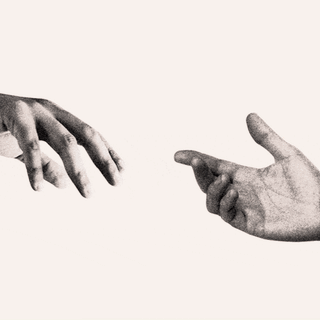Here’s a riddle for you. What is called the modern staple of language, is accompanied by eye rolls, and has a bad rep for being the lowest form of wit? The rather unsophisticated art of sarcasm. The Greek root for the word is sarkazein, which translates into “to tear flesh,” as dogs do. The origin story reflects the pointedness with which these barbs are uttered; it’s understandable why a cultural instinct is to associate sarcasm with hostility, contempt, and an overall mean-girls vibe that is best left forRegina Georgeto embody.
Yet, “it’s practically the primary language” in modern society, said John Haiman, a linguist at Macalester College in St. Paul, Minnesota, and the author of Talk is Cheap: Sarcasm, Alienation and the Evolution of Language.
There must be some nuance getting lost in all those sneers and droll laughs. Pop culture reflects this linguistic staple: Chandler Bing could not be more sarcastic in F.R.I.E.N.D.S; mockery drips from Maya Sarabhai’s sarees in Sarabhai Vs Sarabhai; Jerry Seinfeld must make every remark funny in Seinfeld. We’re oftensarcastic without even realizing it; according to one study, Americans said the phrase “yeah, right” at least 23% of the time sarcastically.
For decades, scientists have looked into how the human brain responds to insults or offensive remarks. Turns out, there may be some benefits to letting the snarkiness out every now and then. Sarcasm is linked to creativity boosts, more honesty, and a sense of social belonging.
Think of it this way: sarcastic statements require mental gymnastics of sorts, seemingly exercising the brain more than normal statements would do. In a 2015 study, college students listened in on complaints to a company’s customer service line; when the complaints were framed as sarcastic quips, the students were able to come up with more creative solutions to the problems. “Because the brain must think creatively to understand or convey a sarcastic comment, sarcasm may lead to clearer and more creative thinking,” according to the study authors. Thisexplains how sarcasm maymake the brain sharper.
Scientifically, this process plays out something like this. We know sarcasm highlights the difference between literal and actual meaning. And “to either create or understand sarcasm, [the] tone must overcome the contradiction… This is a process that activates, and is facilitated by, abstraction, which in turn promotes creative thinking,” the study authors added.
Related on The Swaddle:
Why We Have Many Different Laughs
This creative cycle also happens because sarcastic comments carry much more nuance than a sincere statement would. Every salty dig Maya Sarabhai takes at Monisha, her daughter-in-law, is rooted in her expectations and disappointment. Or when a picnic goes sour due to bad weather, the desire to say “We picked a fine day for this” conveys both hope and dismay.
But this boost in creativity works best when sarcasm is used with care and in moderation. “This creativity effect only emerged when recipients picked up on the sarcasm behind the expresser’s message rather than taking mean comments at face value,” the researchers behind the 2015 studyexplained. So if you’re being sarcastic with a friend, who understands the tone of humor, that is when the true benefits of sarcasm shine the brightest.
Arguably, there is a brand of honesty sarcasm promotes; every salty comment people make is rooted in some semblance of truth. It may also be imperative in a modern society where finding humor in the truth may bind people as a collective. Take this headline by Onion: “Black Man Given Nation’s Worst Job,” as they announced Barack Obama’s election as president in 2008. The comic inversion of reality hinted at the economic and social crises that awaited Obama atthe White House.
In some ways, it could make communication slightly easier. Honesty and perceived bluntness in words would mean they may say exactly what they think. “Sarcasm gives us a less confrontational way to tell someone what we think, that is more palatable to them,” psychologist Nikki Martinez noted.
“Sarcasm has a much higher calling in the art and science of humor,” said Lawrence Dorfman, co-author of The Sarcasm Handbook. “It is the very fact that this critical sarcastic eye often pulls back the curtain of pretense to repeatedly expose that the emperor has no clothes. True sarcasm finds the truth, and gets a good laugh from it. It is not simply a path to comedy, it is a calling of greater responsibility.”
Go ahead, then, open the salty floodgates. We’re ready to roll our eyes.




